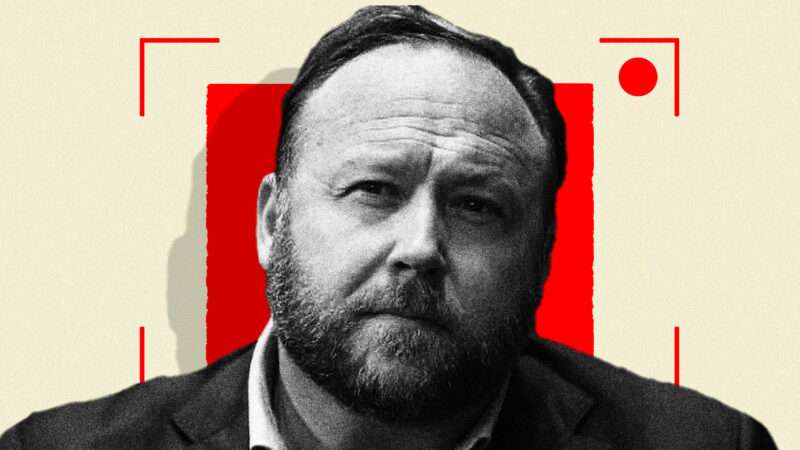
In 2018, conspiracy theorist Alex Jones and his website, Infowars, were banned by YouTube, Facebook, Twitter, and Apple for violating these platforms' hate speech policies. Four years later, the largest social media platforms have prevented the promotion of a documentary about him as well.
Private companies are well within their rights to make the content moderation decisions they deem appropriate. Jones' belief system, which his millions of listeners must find compelling on some level, is predicated on the idea that there's some kind of totalitarian world government lurking in the shadows, either attempting to seize control or already in control of us. It's from this logic that Jones' skepticism of major tragedies and events stems. He has suggested, for instance, that 9/11 and the Sandy Hook school shooting might have been pre-orchestrated, designed by those in charge, and he subsequently faced defamation lawsuits from the parents of some of the shooting victims. Big Tech, the media, and each presidential administration—except Trump's—are all frequent targets of Jones' unrestrained ire and boundless grievances.
But when Big Tech firms uniformly decline to platform anything Jones-related, they may be fueling the flames of his paranoia. As the old saw has it, just because you're paranoid, doesn't mean they're not out to get you.
I went to the movie premiere of Alex's War last Saturday ahead of its release date, which is today, and walked away with a heightened appreciation for Jones' charisma but stronger disdain for his shoddily substantiated theories. Though he's forcefully asserted that the 2020 election was stolen from former President Donald Trump, Jones has provided meager evidence to back such claims up, and even admitted in the Q&A afterward that his stolen-election beliefs were somewhat pre-formed. But that didn't stop him from assembling with his acolytes at the Georgia Capitol where results were being certified, and at the January 6 rally in Washington which turned violent. (Jones left prior to the breach of the Capitol building.)
Still, when Big Tech platforms suppress Jones, and the work of those interested in Jones, like Alex's War director Alex Lee Moyer—who made the Sundance and SXSW rounds via her first documentary, which explored the world of incels—they lend credibility to his conspiracy theories and increase the illicit appeal of his views to the audiences who continue to seek him out, who may in fact be enchanted by the heightened allure.
For example, Instagram blocked Moyer and team from doing paid promotions for the documentary; TikTok removed the Alex's War trailer because it contained or promoted "hateful behavior"; Google Ads said the trailer was in violation of its policies, too, and warned Moyer not to try again; Meta said the trailer could not be promoted due to "inauthentic behavior or violations of our Advertising Policies and Community Guidelines," but failed to specify what those violations entailed.
These tech platforms are well within their rights to deplatform or suppress whoever they want; they deliberately set community standards, which are consented to by users, and sometimes, in content moderators' eyes, transgressed by conspiracy-mongers like Jones. But by deplatforming both Jones and those who critically engage with his ideas, they're unintentionally hyping his beliefs. By making them illicit, platforms are implying that they're dangerous, rather than laughable or uninteresting. Jones' whole point is that there are shadowy figures in power that are subjugating and manipulating us; he, like Trump, fixates on media malfeasance and double standards, which is a compelling message to his roughly 5 million followers (as of 2016, though such numbers are hard to pin down, especially as his feeds have been whack-a-moled out of existence). That message is plausibly made more compelling if Jones can lodge a fresh grievance against Big Tech.
There's no reason to believe such censorship will snuff Jones out. It may, in fact, do the opposite. He's a shrewd businessman, successfully hawking supplements ("Super Male Vitality" drops!), bulletproof vests, and other doomsday-prep materials; he maintains a huge audience; he's been on Joe Rogan's show repeatedly (which has outraged some Spotify employees); he's the subject of a new documentary. He knows how to parlay controversy into earned media for his kooky theories, and the result may be the very opposite of what those who would deplatform him are trying to achieve.
The post Big Tech's Ban on Alex Jones Fans the Flames of His Conspiracy Theories appeared first on Reason.com.







